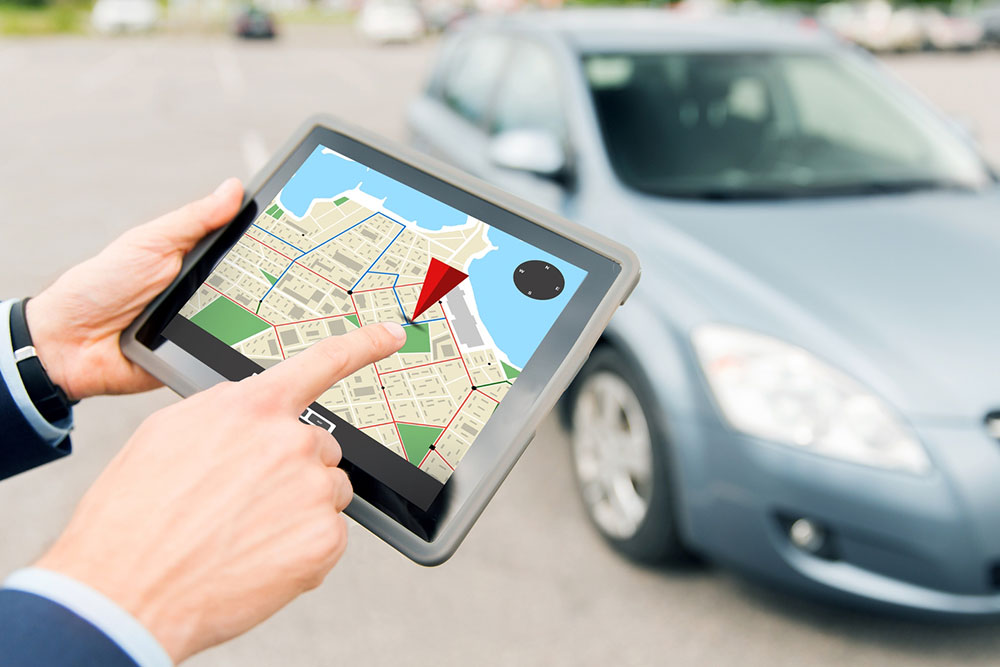
Top 10 benefits of GPS tracking systems
The Global Positioning System (GPS) is a satellite navigation technology that provides precise location and time information regardless of weather conditions. GPS-based devices can be installed on any hardware , say , phones, vehicles, or wearable gadgets. Then, they can monitor and track the movements of these objects. Used in various industries, from transportation to logistics and for personal daily use, GPS trackers have changed navigation by offering people and organizations a variety of benefits.
1. Optimized route planning
GPS-based trackers collect, store, process, and display location and provide features like historical data analysis, real-time monitoring, geofencing, and alerts. These details can help drivers plan their routes. Even on the seafront, fleets can track the closest fleet and reroute to avoid collisions. This helps optimize routes on both land and water.
2. Lower operational and fuel costs
GPS tracking systems are equipped to share information about traffic conditions, road hazards, and under-construction areas and highlight the best route. This makes dispatching and traveling decisions easier and, ultimately, saves businesses fuel costs by reducing idle time. Often, drivers may have to deviate from decided routes to avoid issues they did not expect at the journey’s onset. GPS tracking is beneficial in such cases. Businesses can use the tracking systems to spot issues beforehand and then account for changes in the fleet routes. This helps them reduce the chances of delays, inefficiencies, and missed deliveries. Finally, timesheet errors, like working hours miscalculated or incorrect billing can also be reduced with these systems.
3. Enhanced safety and security
GPS tracking systems help ensure the safety and security of people and assets. For instance, in the healthcare sector, trackers are often used to monitor the location and movement of those with Alzheimer’s or dementia. The trackers may also be combined with systems that can alert authorities of any accidents, improving emergency response times. In the transportation sector, tracking systems can optimize route planning, improve fleet management, and enhance security, especially if a vehicle or asset is lost or stolen in transit.
4. Increased productivity
Businesses can analyze data like dispatch time, fuel use, overspeeding, and unnecessary fuel consumption. Based on these results, they can encourage drivers to make better decisions. Fleet managers can also use trackers to plan routes that save time, cut down distance, and ensure drivers don’t make unnecessary stops. Similarly, GPS systems can help the agricultural sector, where farmers can accurately navigate fields to collect soil samples and map problem areas to avoid planting crops there.
5. Reduce chemical use in agriculture
One of the notable benefits of GPS devices is their ability to map fields precisely for different agricultural activities. Crop dusters, aerial sprays that destroy insects that harm crops, can use GPS to spread chemicals over the field in areas that require them, avoiding overuse or underuse. With tracking systems, farmers can also get more or less accurate weather forecasts through satellite images to help them make better planting and harvesting decisions. This helps them utilize resources optimally.
6. Health tracking and recreational use
Not just businesses, GPS can also benefit people who want to track their distance, speed, and routes as they engage in physical activities. GPS can be easily installed in wearables like smartwatches or even cell phones. The systems allow users to track their precise location, monitor their progress, and share their routes with others for safety. GPS can also help hikers navigate unfamiliar terrains and find their way back in case they get lost. The technology is also being used to create augmented reality games in certain locations.
7. Better waste management
GPS has also transformed waste management. Here, dumpsters are equipped with GPS systems to give waste management companies precise data points and insights into dumpster location and usage. This often leads to better deployment plans by reducing unnecessary pickups and optimizing routes.
8. Precise train tracking
Trains, especially those transporting goods, use GPS technology to improve scheduling and ensure timely deliveries. GPS tracking systems also help address logistical challenges quickly and ensure uninterrupted supply.
9. Improved asset management
A GPS tracking system attached to an asset can track its departure, stop times, travel and drive time, location, and any periods of inactivity. This is especially beneficial for businesses transporting high-value assets and inventory. With trackers, businesses can ensure assets are not lost, and delays are addressed promptly. GPS tracking also makes it easier to track the reasons for delays and rectify any transportation errors.
10. Aid in search and rescue operations
GPS systems help track, search, and rescue people in areas that may be difficult to access . Rescue teams can get information about the missing person(s) and pinpoint their location by tracking their smartphone or GPS device. This type of tracking is also used widely in the military to monitor troop movements and aircraft, especially at night.




